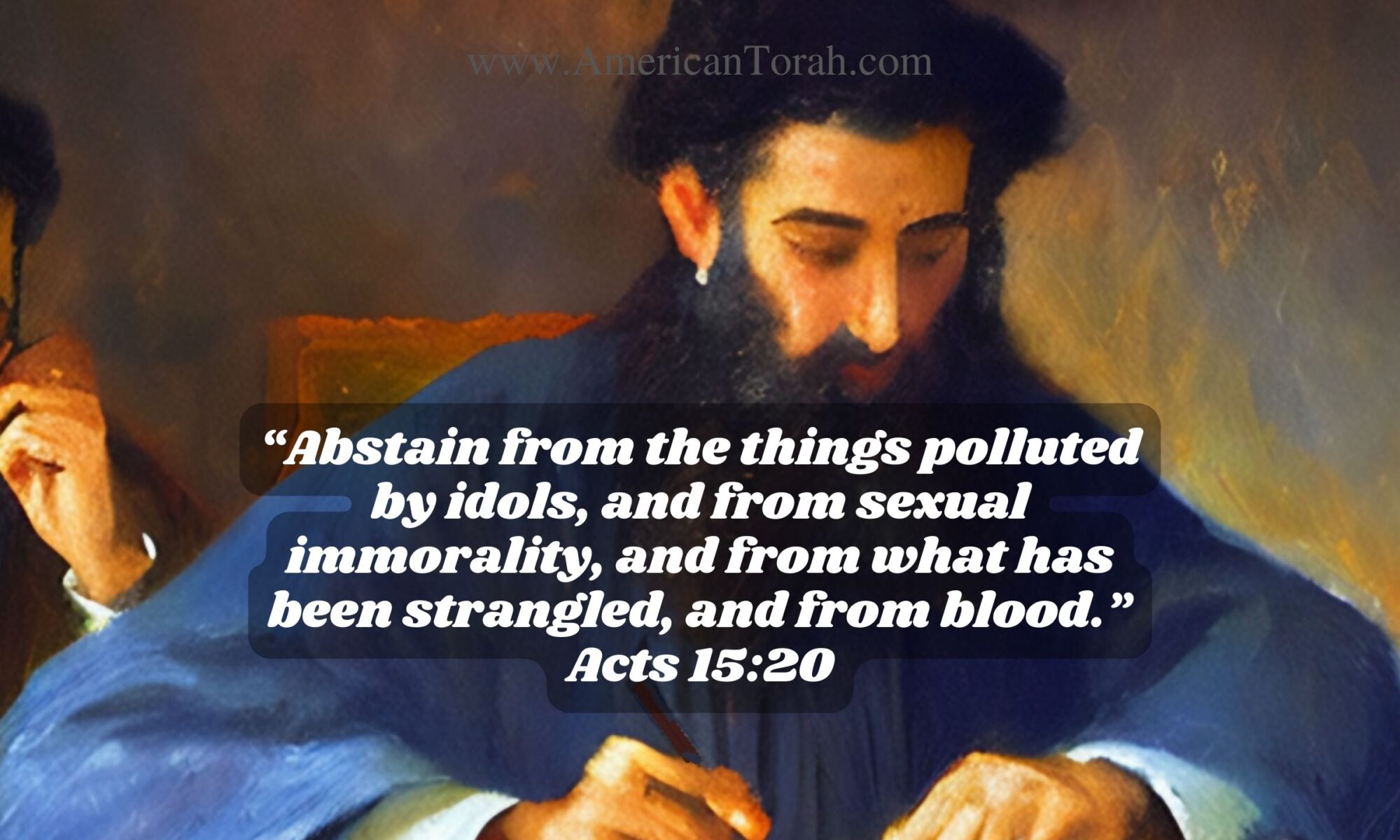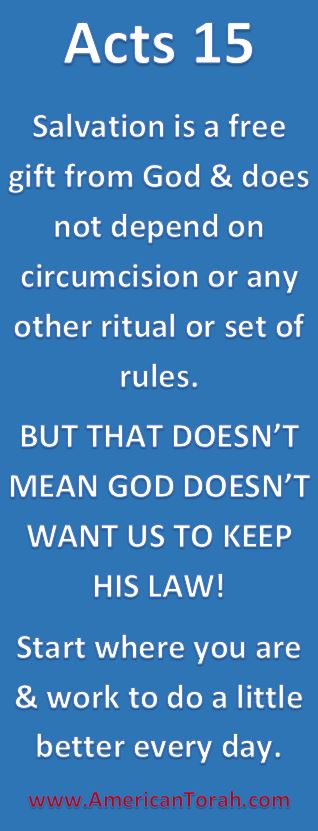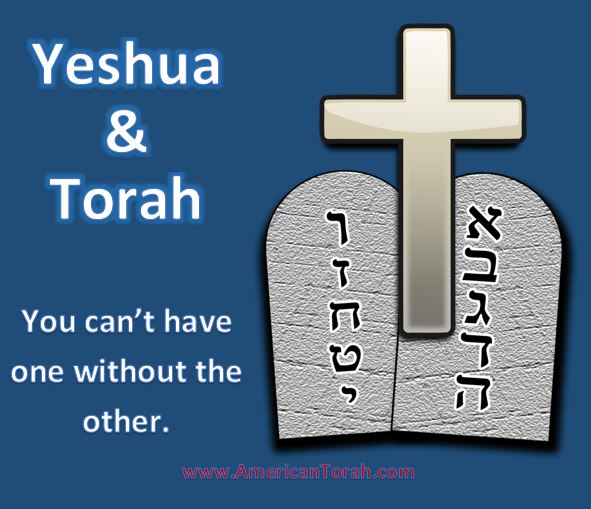Do not think that I have come to abolish the Law or the Prophets; I have not come to abolish them but to fulfill them. For truly, I say to you, until heaven and earth pass away, not an iota, not a dot, will pass from the Law until all is accomplished.
Matthew 5:17-18 ESV
Torah-keepers point to these verses as a primary text proving the ongoing validity of the Law of Moses (aka Torah), while anti-Torah Christians point to them as proof the Law has passed away, been nailed to the cross, superseded…you get the idea. Whatever word they choose to use, it amounts to the same as “abolish”.
In light of the numerous biblical passages claiming that the Law will never pass away, it seems the burden of proof must lie on those who claim that Yeshua here said the opposite. This is the typical argument: Yeshua said the Law would pass away when the Law was fulfilled, and he fulfilled the law on the cross, therefore the Law has passed away. The obvious counter is that Yeshua did not say “when the Law was fulfilled.” He said “nothing will pass from the Law until all is accomplished” (or “fulfilled” in some translations).
What did he mean by “all”?
I see four possible meanings: all of the Law, all of the Prophets, the passing away of all of heaven and earth, and the completion of Yeshua’s mission on earth.
- All of the Law. What does it mean for all of the Law to be accomplished? Whatever it means, Yeshua’s death and resurrection could not have done it because decades after the resurrection, in Romans 13:8, Paul wrote that believers loving one another continue to fulfill the Law. Some will say that he was referring to a greater, unwritten Law of God that is superior to the Torah (aka Law of Moses), but in the very next verse, Paul wrote that he was specifically talking about the Torah or at the very least, the Ten Commandments which is at its core. All of the New Testament epistles are full of instruction based on the commandments of Torah. Why would the Apostles continue to instruct first century believers on how to observe and fulfill those commandments if Yeshua had nullified them by fulfilling them?
- All of the Prophets. It’s trivial to show that some prophecies in the Old Testament have not yet been fulfilled. For example, in Deuteronomy 30 Moses prophesied that Israel will repent from their rebellion against God and be fully restored to the land of Israel where God will circumcise their hearts and the hearts of their children so that they would keep all of the commandments given by Moses. There have been two partial returns of Israel to the land, once in the time of Nehemiah and Ezra, and once in the twentieth century. In neither case was there any significant repentance. In the former case, God returned the people to exile. Today, the state of Israel hosts some of the world’s largest celebrations of rebellion against God. There are numerous prophecies of Israel’s eventual repentance and restoration to the land, and none of them have been fulfilled.*
- The End of Heaven and Earth. As I write this article, I am flying through the air at more than 30,000 feet above the surface of the earth. Outside the windows of this A330, I see sun, sky, clouds, mountains, and many miles of West Texas desert. I know that when I am home tonight, I will be able to look up in the sky and see the moon and thousands of stars. I hope you’ll trust me when I say that the heavens and the earth have not yet passed away. In fact, Revelation 20:11 says that they won’t pass away until the Great White Throne Judgment immediately prior to the final resurrection. If Yeshua meant that the Law would pass away with the heavens and the earth, then it nothing in the Law will pass until God is ready to judge every person who has ever lived.
- Yeshua’s Mission on Earth. This is probably what most Christians believe Yeshua meant when he said “until all is accomplished”. When he said “It is finished” on the cross, that was the end of the Law. However, as I pointed out above, Paul said that believers continue to fulfill the Law of Moses after Yeshua’s death by obeying the command in Leviticus 19:18, “You shall love your neighbor as yourself”. James also repeated this command, even stating that it was from Scripture at a time when the old Scriptures available were the Old Testament, so it is very unlikely that he was referring to the Gospels. Many scholars believe that James’ letter was the first of all the New Testament writings.
As you can see, none of the possible interpretations of “till all be accomplished” in Matthew 5:18 stand up when the whole of Scripture is considered. According to Paul, the Law wasn’t abolished at the cross. All Old Testament prophecy has not been fulfilled. The heavens and the earth are still here.
In Matthew 5:17, Yeshua said that he had come to fulfill the Law, and I think we have to believe that he did that or else he failed in his mission. In the very next verse, he said that not one jot or tittle will pass from the Law until all is accomplished, which can only mean that fulfilling the Law does not annul it or cause anything to pass from it. If both Paul and James taught that believers fulfill the Law by obeying it, why should we assume that Yeshua meant something different when he said he came to fulfill it?
One of the fundamental principles of Bible study is to let the Bible define its own terms. Of course, tradition and historical context can also be important, but ultimately, every biblical concept must be understood by how that concept is used and explained in the Bible itself.
What does the Bible say it means to “fulfill the Law”?
The Greek word translated “fulfill” in v17 is πληρόω (pleroo). It is often used to describe the fulfillment of a prophecy. The Torah is full of prophecies about the Messiah (Joseph’s entire life story is prophetic, for example), and Yeshua certainly fulfilled it in that way.
However, it is also frequently used to describe keeping the requirements of a commandment as when Yeshua, Paul, James, and John said that if we keep the commandments, we are loving one another, and–vice versa–if we love one another, we will also be keeping (fulfilling) the commandments because the commandments are instruction in how to love. (See John 14:15, 14:21, Romans 8:4, 13:8-9, 2 Corinthians 10:6, Galatians 5:14, James 2:8, 1 John 5:2-2, and 2 John 1:6.)
Pleroo/filled-full is also used to describe something being filled up or made complete. Yeshua was filled with wisdom in Luke 2:40, valleys are filled in Luke 3:5, joy is made full in John 15:11, and Ananias’ heart is filled by Satan in Acts 5:3.
In no case does pleroo ever mean to nullify or cancel anything. When applied to God’s commandments as given through Moses, it can only mean one of three things: 1) Fulfill their prophetic meaning, 2) Obey them, or 3) Fill or restore them with their intended meaning. Based on Yeshua’s own words throughout the Gospels and the Apostles teachings, “I have come to fulfill the Law and the Prophets” in Matthew 5:17 probably means all three, but it definitely cannot mean that Yeshua came to abolish, nullify, make obsolete…and any other synonym that people might use to get around Yeshua’s plain words in verse 18.
Our task from here is to reexamine the erroneous interpretations of verses that talk about “blotting out the handwriting of ordinances” and “that which decayeth and waxeth old is ready to vanish away”. See here for more thoughts on this and related topics: Objections to Keeping Torah.
* Since the Deuteronomy 30 prophecy also clearly states that the result of Israel’s circumcised hearts at some point in the future is obedience to Torah, God must still be pleased by his people obeying Moses’ instructions.


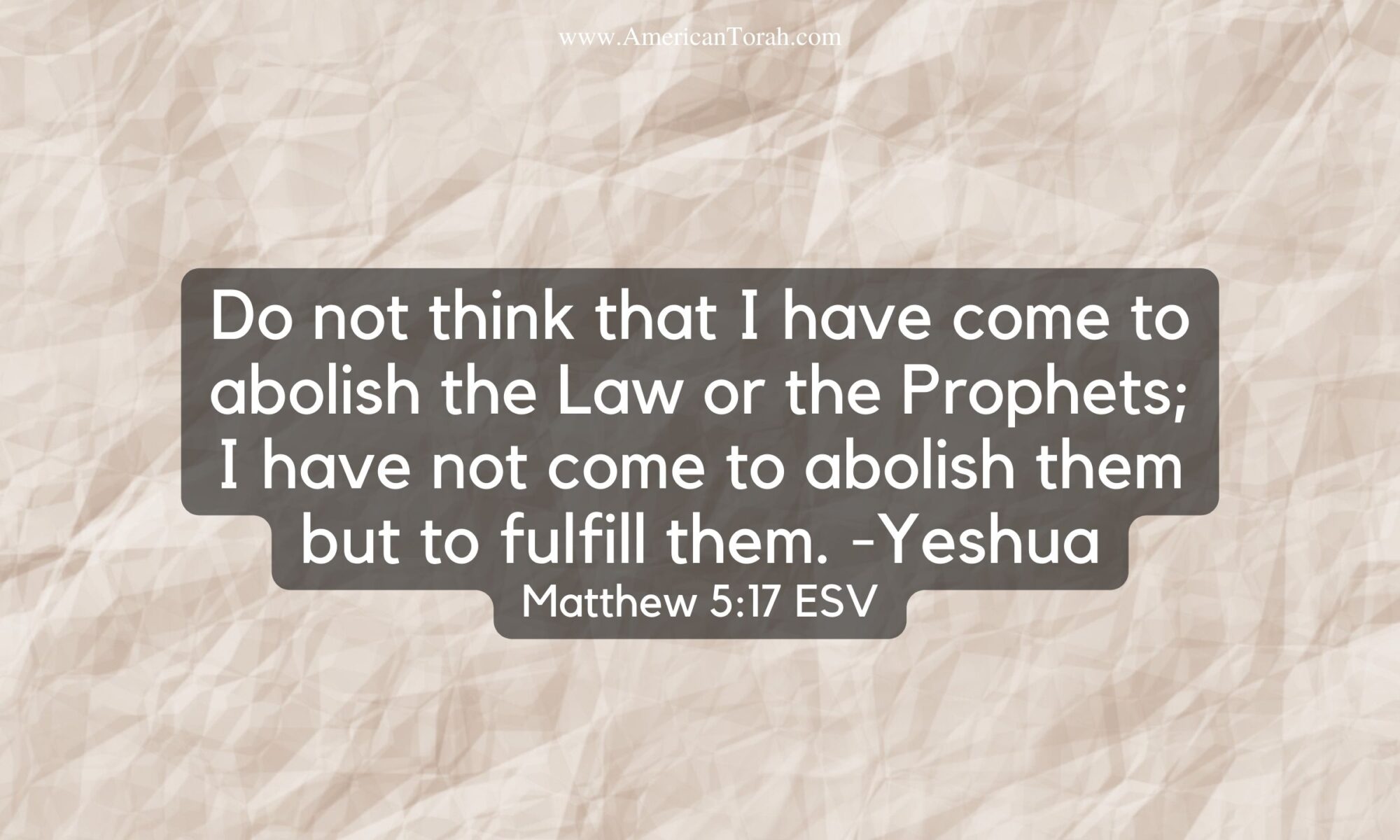
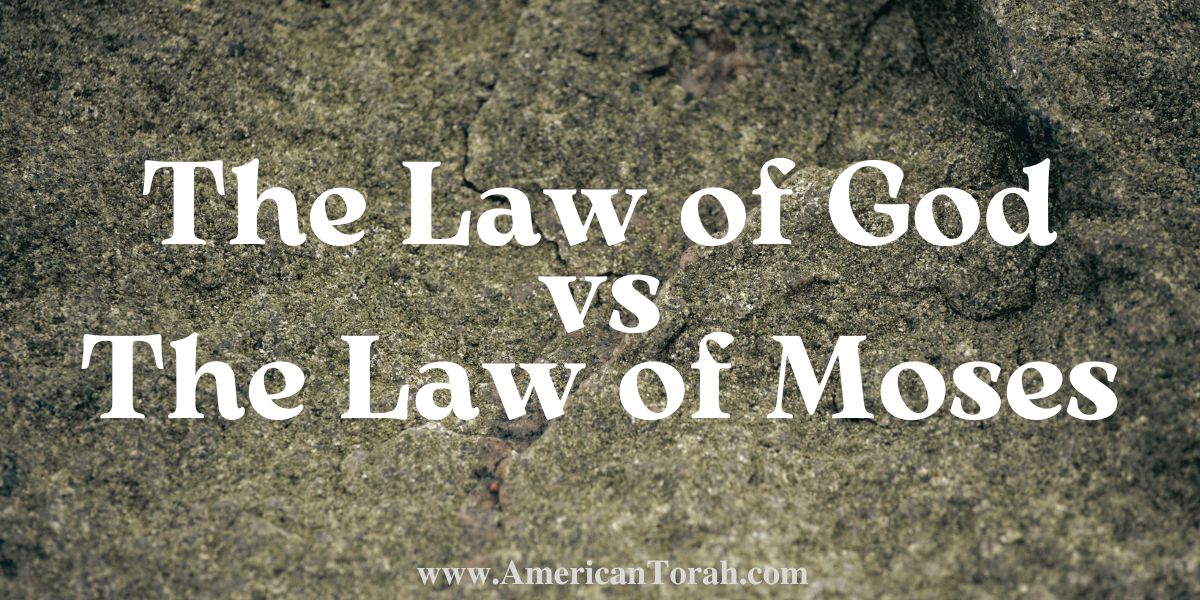


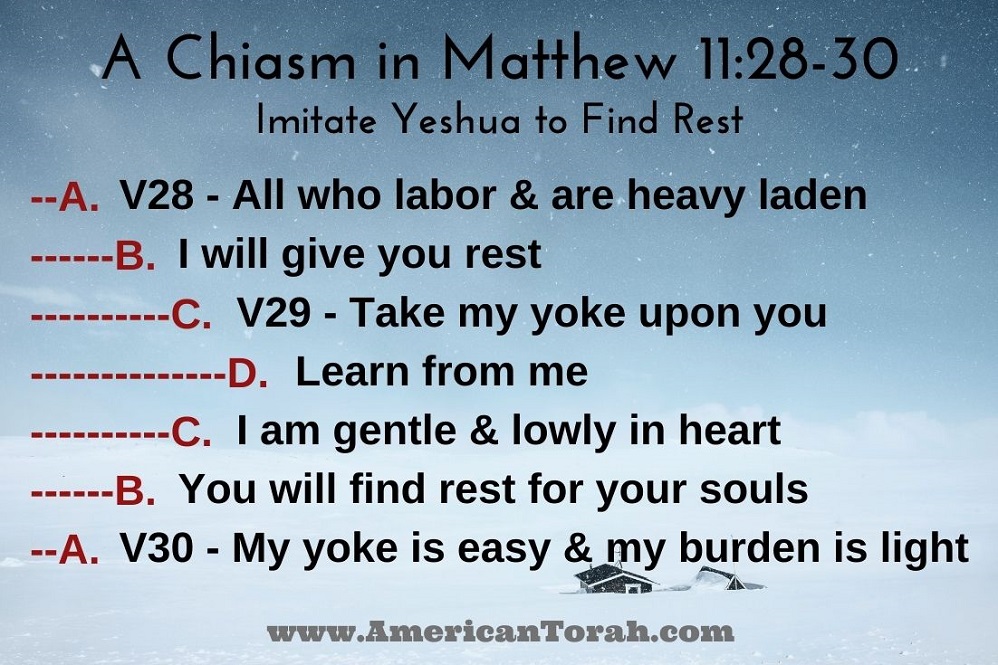

 Forgive all debts to fellow believers/Hebrews (whether native-born Israelites or grafted in) at the end of every 7th year. Don’t be stingy. Lend to your poor neighbors at zero percent interest with the full expectation that they will pay you back no matter how much time is left. If they don’t pay you back on time, don’t hold it against them.
Forgive all debts to fellow believers/Hebrews (whether native-born Israelites or grafted in) at the end of every 7th year. Don’t be stingy. Lend to your poor neighbors at zero percent interest with the full expectation that they will pay you back no matter how much time is left. If they don’t pay you back on time, don’t hold it against them.
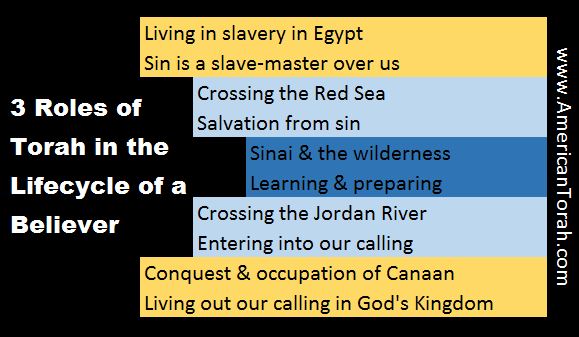 The slavery of the Hebrews in Egypt is like the slavery we all suffer under sin. Torah reveals our low state and prompts us to cry out to God for mercy. It leads us to a knowledge of our need for a Savior, and if we don’t reach out to Him, it is a witness against us at the final judgment. The Hebrew slaves didn’t yet know the details of God’s commands, but like the sinner who hears the call to repent, they knew that they weren’t free. Only when we become aware of our chains and beg forgiveness does God lead us to freedom. He doesn’t demand anything of us at that point except humility and faith. “Stand back,” Moses said at the shore of the Sea, “and behold the salvation of Adonai!” With nothing but faith to walk, they crossed the Red Sea and left the defeated Egyptians behind. Sinai was still ahead in the wilderness.
The slavery of the Hebrews in Egypt is like the slavery we all suffer under sin. Torah reveals our low state and prompts us to cry out to God for mercy. It leads us to a knowledge of our need for a Savior, and if we don’t reach out to Him, it is a witness against us at the final judgment. The Hebrew slaves didn’t yet know the details of God’s commands, but like the sinner who hears the call to repent, they knew that they weren’t free. Only when we become aware of our chains and beg forgiveness does God lead us to freedom. He doesn’t demand anything of us at that point except humility and faith. “Stand back,” Moses said at the shore of the Sea, “and behold the salvation of Adonai!” With nothing but faith to walk, they crossed the Red Sea and left the defeated Egyptians behind. Sinai was still ahead in the wilderness.